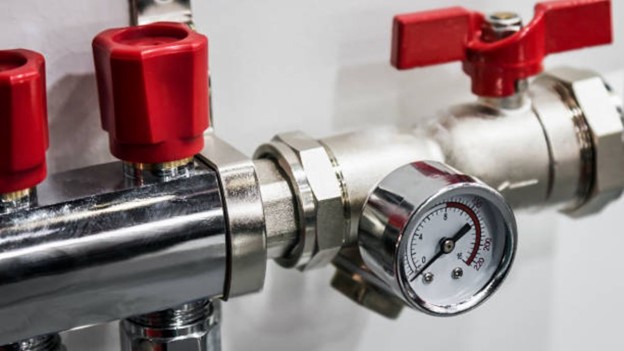Exploring the Dangers of a Noisy Water Heater
When it comes to home maintenance, the water heater often gets overlooked. It’s one of those household appliances we take for granted, providing us with hot water day in and day out. However, when it starts making strange noises, it’s hard to ignore. From banging and popping to hissing and whistling, a noisy water heater can be more than just an annoyance. It can also signal serious problems that could potentially lead to costly repairs or even pose safety hazards. In this post, we’ll explore the is a noisy water heater dangerous, why these noises occur, and what you can do to address them.
Understanding the Common Noises
Before diving into the dangers, it’s important to understand what the different noises coming from your water heater might indicate.
Banging and Popping
These noises are often caused by the accumulation of minerals and sediment at the bottom of the tank. As the water heats up, the sediment traps water beneath it, causing it to overheat and eventually burst through the sediment layer, resulting in a banging or popping sound. This is a common issue in areas with hard water.
Hissing and Whistling
Hissing or whistling sounds are usually due to water escaping from a small opening or a loose valve. This could indicate a leak or a pressure issue within the tank.
Screeching
A screeching sound is typically caused by a partially closed valve at the water heater outlet or inlet. This restricts water flow, creating the high-pitched noise.
The Dangers of Ignoring a Noisy Water Heater
While some noises might seem harmless, ignoring them can lead to significant problems.
Sediment Buildup and Efficiency Loss
As sediment builds up at the bottom of the tank, it creates a barrier between the burner and the water. This reduces the efficiency of the water heater, causing it to work harder and use more energy to heat the water. Over time, this can lead to higher utility bills and a shorter lifespan for your water heater.
Overheating and Pressure Issues
Sediment buildup can also cause the water heater to overheat. When water gets trapped beneath the sediment, it can become superheated and turn into steam, increasing the pressure inside the tank. If the pressure becomes too high, it can cause the tank to rupture, potentially leading to significant water damage and safety hazards.
Leaks and Water Damage
Noises caused by leaks should never be ignored. Even a small leak can lead to significant water damage if left unaddressed. Leaks can weaken the structural integrity of your home, promote mold growth, and cause damage to flooring, walls, and personal belongings.
Risk of Explosion
In extreme cases, the combination of overheating and high pressure can cause the water heater to explode. While this is rare, it is a serious risk that can result in extensive property damage and injury.
What to Do If Your Water Heater Is Noisy
If you notice your water heater making unusual noises, it’s essential to take action promptly.
Flush the Tank
One of the first steps you can take is to flush the tank to remove sediment buildup. This involves draining the water heater and then refilling it to flush out the accumulated sediment. It’s a good practice to do this at least once a year, especially if you live in an area with hard water.
Check the Valves
Inspect the valves on your water heater to ensure they are fully open and functioning properly. If you hear a screeching sound, it might be due to a partially closed valve that needs to be adjusted.
Inspect for Leaks
Regularly check around your water heater for signs of leaks. Look for water pooling around the base of the tank or moisture on the walls and floor nearby. If you find any leaks, it’s crucial to address them immediately to prevent further damage.
Call a Professional
If you can’t determine the cause of the noise or if the noise persists after taking the above steps, it’s time to call a professional plumber. They can diagnose the problem and recommend the best course of action, whether it’s repairing or replacing the water heater.
Preventative Maintenance Tips
Preventative maintenance can help extend the life of your water heater and prevent noisy and potentially dangerous issues.
Regular Inspections
Schedule regular inspections with a professional plumber to ensure your water heater is in good condition. They can check for signs of wear and tear, sediment buildup, and potential leaks.
Install a Water Softener
If you live in an area with hard water, consider installing a water softener. This can help reduce the amount of mineral buildup in your water heater and extend its lifespan.
Monitor the Pressure
Keep an eye on the pressure relief valve and ensure it is functioning correctly. This valve helps to prevent excessive pressure buildup in the tank, reducing the risk of overheating and explosion.
Replace Anode Rods
The anode rod in your water heater helps to prevent corrosion inside the tank. Over time, this rod can wear out and need replacement. Regularly checking and replacing the anode rod can help prolong the life of your water heater.
Conclusion
A noisy water heater is not something to be ignored. The sounds it makes can be a warning sign of underlying issues that, if left unaddressed, can lead to significant problems, including efficiency loss, leaks, water damage, and even the risk of explosion. By understanding the common causes of these noises and taking proactive steps to address them, you can ensure the safety and longevity of your water heater.
So, is a noisy water heater dangerous? The answer is a resounding yes. By paying attention to the sounds your water heater makes and taking prompt action, you can avoid potential hazards and keep your home safe and efficient. If you’re unsure about the noises or how to address them, don’t hesitate to contact a professional plumber for assistance.



